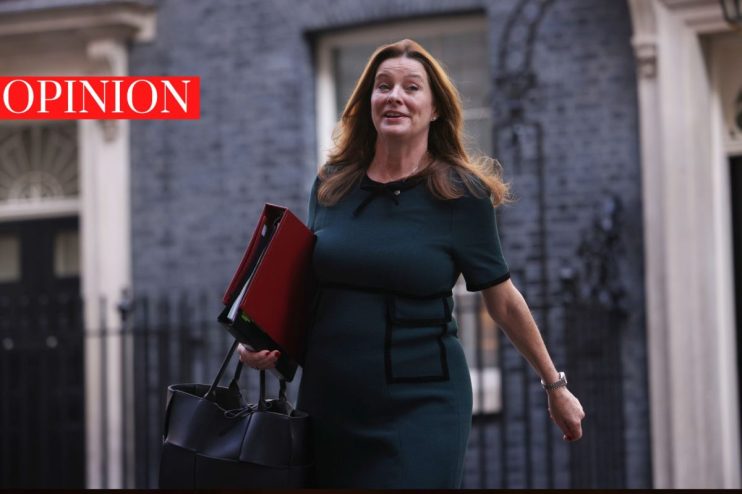Hot mic moments show us the real side of our leaders, for better or worse

When Gillian Keegan swore on camera this week, it caused quite a reaction. But hot mic moments are fundamental in showing us political and business leaders are human, writes Simon Neville
Who doesn’t love a hot mic moment? They break through the monotony of the highly polished executive or politician, determined to get their line across at any cost, with something more honest and human.
This week it was the turn of Gillian Keegan, the Education Secretary, who asked an ITV News reporter at the end of an interview: “Does anyone ever say, you know what, you’ve done a f***ing good job because everyone else has sat on their arses and done nothing?”. Only she knows why she made her outburst despite being well-versed in the rule that any microphone could be on – especially one that’s literally clipped to your body.
A personal favourite hot mic moment from the world of business was former Sainsbury’s boss Mike Coupe singing “We’re in the money” as he waited in front of a camera to be interviewed. This too was with ITV News, and the clip now forms part of a number of media training packs as how not to do it, along with ex-Persimmon chief Jeff Fairburn’s strop on BBC News.
Coupe’s case was interesting because ITV News had to make a decision on whether to run the clip or not, considering what was the news value in running it and what the consequences would be.
They decided to do it, and they were right in doing so, as they were with the Keegan clip this week. These moments are important, because they show the public a different side to our political and business leaders. Sainsbury’s were said to be furious and business editor Joel Hills was in the dog house with the supermarket for several months – it’s thought relations remain strained.
Admittedly with Coupe’s hot mic moment, all we learned was he had seen West End musical 42nd Street the night before and had an earworm for one of the tunes. Alas, maybe singing “We’re in the Money” the day you’re announcing a mega merger with Asda and the focus is on whether you’ll get a big bonus from the deal, is not a good look.
The serious side of the incident led some to question his judgement at such a sensitive time. But, ultimately, everyone decided it was harmless and created space for humility from Coupe. The same outcome appears to be the case for Keegan – she comes across as passionate about the issue in question.
But the key difference between Coupe and Keegan is that the Education Secretary had to go out and defend her position whereas Sainsbury’s comms team could take on the clean up for their boss’s mess. Keegan’s apology broadcast round is almost as good as the original sin.
Her unease is only bettered by Gordon Brown’s hot mic moment during the 2010 election where he called a voter a “bigoted woman”. For him, the next broadcast round after the hot mic was with the BBC’s Jeremy Vine, where the audio was played back to him for the first time. His look of horror at realising in real-time what had happened is harrowing, and the self-inflicted pain is exacerbated by the radio studio having a camera in place.
There is a lesson here for politicians and business leaders of the future. Probably assume anything said is on the record unless told otherwise, treat any microphone as being on and avoid West End musicals. But perhaps most importantly, don’t panic too much about whether it might happen to you. If it does and the comments come from a place of integrity and authenticity, then the outcome will probably be fine.
If you show honesty that reveals selfishness or egotism, then there will be a blow back. Keegan may well face perceptions of both, depending on where you fall on the political spectrum. But political leaders should know that vulnerability can be extremely powerful when trying to land a message and embrace it where they can.
Keegan asked why no one tells her she’s doing a “f***ing good job”. Well, this week she has – in reminding us about hot mic moments and their impact on how politicians and business leaders are perceived.